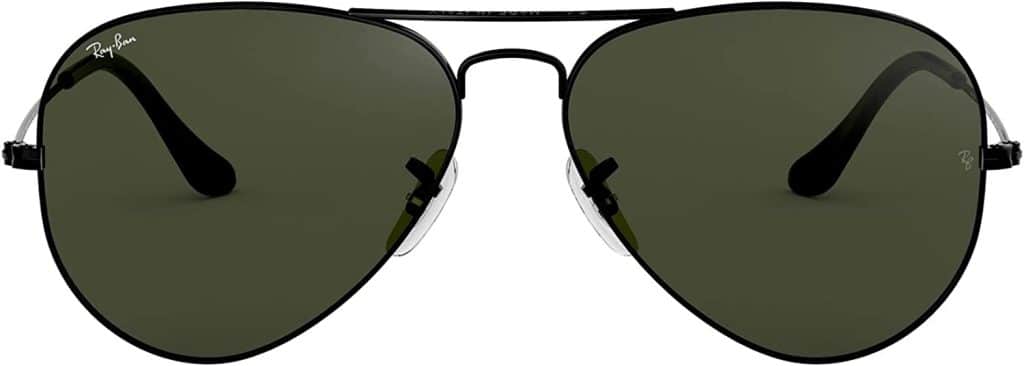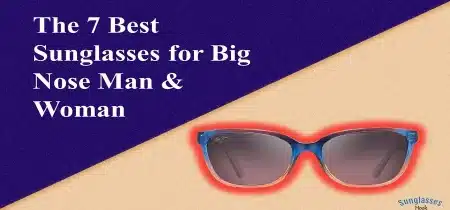The ability to see clearly and comfortably is essential for pilots. The sky can be a dazzling place with the sun shining intensely, especially at high altitudes. Consequently, many pilots wear sunglasses to shield their eyes. One question that often arises is whether polarized sunglasses are suitable for pilots. In this post, we’ll dive into the various aspects of polarized sunglasses and answer the question: can pilots wear polarized sunglasses?
Introduction to Polarized Sunglasses
How Polarization Works
Before delving into their application in aviation, it’s essential to understand what polarized sunglasses are. When light reflects off surfaces like water or a flat piece of metal, it tends to become polarized, meaning the light waves align in parallel to each other. This alignment can create intense glare. Polarized sunglasses have a special filter that blocks this aligned light, reducing glare.
Benefits for the General Public
For the general public, polarized sunglasses are popular, especially among outdoor enthusiasts. They can significantly reduce glare from surfaces like water or the road. This not only makes the environment more visually comfortable but can also enhance the perception of colors and contrasts.
Considerations for Pilots

Now, let’s consider the specific environment in which pilots operate.
Glare in the Sky
While glare is a concern for pilots, especially when flying at lower altitudes over water or other reflective surfaces, it’s not the only consideration. At higher altitudes, the atmosphere thins and does less to filter out sunlight, which can be intense.
Cockpit Instruments
Modern aircraft, especially glass cockpits, often have digital displays. Polarized sunglasses can interfere with these displays, making them difficult or sometimes impossible to read because of the way LCDs emit polarized light.
Windshields and Windows
The windshields and windows in some aircraft can themselves be polarized or have a treatment that can cause strange visual patterns when viewed through polarized sunglasses.
Potential Drawbacks of Polarized Sunglasses for Pilots
Reduced Visibility of Instruments
As mentioned earlier, one of the main issues with polarized sunglasses is their interaction with LCD displays. Many aircraft are equipped with these displays, and wearing polarized sunglasses can make them appear to be black or distorted. This can be particularly problematic in critical situations where quick, accurate readings are necessary.
Visual Distortions
Polarized sunglasses can sometimes interact with the windshields of airplanes to produce visual distortions. This might not only be disorienting but could also potentially be dangerous, particularly during takeoff, landing, or other critical phases of flight.
Potential to Miss Other Aircraft
Another concern is that the glare reduction of polarized lenses might cause a pilot to miss the reflection off another aircraft. Usually, such a reflection might alert a pilot to the presence of nearby traffic, but the polarized lenses might make it less visible.
Guidelines and Regulations
Federal Aviation Administration (FAA) Recommendations
The FAA does not specifically prohibit the use of polarized sunglasses, but it does offer recommendations. According to the FAA, pilots should wear sunglasses that protect against UV rays, are comfortable, do not distort colors too much, and do not restrict the vision.
Airline Policies
Individual airlines might have their own policies regarding polarized sunglasses. Some might allow them, while others might not. It’s important for pilots to check with their employer’s specific guidelines.
Alternative Sunglasses for Pilots
Non-Polarized UV Protection
Because of the potential issues with polarized sunglasses, many pilots opt for high-quality, non-polarized sunglasses that offer UV protection. This still shields the eyes from the intensity of the sun without the potential downsides of polarization.
Gradient Lenses
Some aviators prefer sunglasses with gradient lenses. These have a darker tint at the top that gradually lightens toward the bottom. This can be particularly useful in the cockpit where a pilot might need to look up through the windshield at the bright sky but down at instruments that are better viewed through a lighter tint.
Making The Right Choice
When choosing sunglasses for flying, here are a few tips that pilots should consider:
- UV Protection: Always choose sunglasses that offer 100% UVA and UVB protection.
- Lens Color: Gray lenses are often recommended because they reduce light intensity without altering the perception of colors, which is crucial for identifying colored signals and lights.
- Frame Style: Choose a frame style that provides good coverage but does not obstruct peripheral vision.
- Comfort and Fit: Since pilots wear sunglasses for extended periods, it’s vital that they are comfortable. They should not exert too much pressure on the temples or nose.
- Check with Your Airline or Flight School: Finally, always check if there are specific regulations or recommendations from your employer or flight school regarding sunglasses.
Conclusion: Weighing the Pros and Cons
Polarized sunglasses offer undeniable benefits for reducing glare, and for many people, they are the eyewear of choice. However, for pilots, the choice is not so clear-cut. The potential for interference with cockpit instruments and visual distortions means that pilots need to be very cautious about using polarized sunglasses.
In many cases, high-quality non-polarized sunglasses that offer full UV protection and have a neutral gray tint may be the better choice. Ultimately, the safety and comfort of the pilot and passengers should be the guiding factors in this decision.



Recent Comments